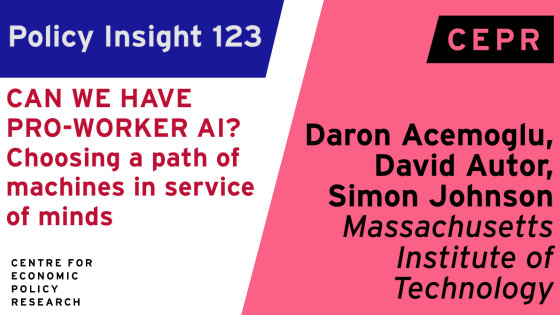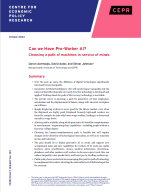The evidence suggests that the private sector in the United States is currently pursuing a path for generative AI that emphasises automation and the displacement of labour, along with intrusive workplace surveillance. As a result, disruptions could lead to a potential downward cascade in wage levels, as well as weak productivity gains.
However, the authors argue that there is a viable alternative approach, where generative AI can enhance human abilities, but this necessitates changes in direction for technological innovation and corporate practices. The objective should be to utilise AI to create new job roles and enhance skills for workers such as teachers, nurses, technicians, electricians and plumbers, which would decrease inequality, enhance productivity, and increase wages by elevating workers' expertise.
The authors suggest five key government policies to consider:
- Equalisation of tax rates on employing workers and owning equipment/algorithms to ensure fairness between human workers and machines.
- Revision of occupational health and safety regulations to establish limitations on worker surveillance while also exploring methods to empower workers in the technology development process.
- Allocation of more funding for research into technology that complements human capabilities, recognising the current lack of emphasis on this area in the private sector.
- Establishment of government-run AI centres of expertise to facilitate knowledge sharing among regulators and other officials.
- Utilisation of the government's expertise to assess whether purported human-complementary technology is suitable for integration into publicly provided education and healthcare programmes, including at the state and local levels.
Overall, the positive impact of generative AI on work and workers is uncertain, as current biases in the tax code, private sector, and tech industry favour automation over augmentation. However, this Policy Insight illustrates an alternative route that could generate new roles, elevate skill sets, and enhance productivity.
The success of the United States and Europe in steering domestic AI development towards a human-complementary trajectory could have wide-ranging positive implications for other developed economies – and for all countries. This necessitates a shift in priorities and a broader public understanding of the stakes and the available choices, making it a challenging yet vital endeavour.


